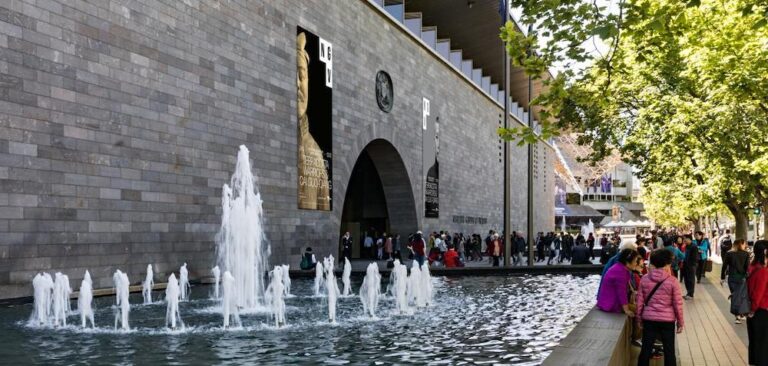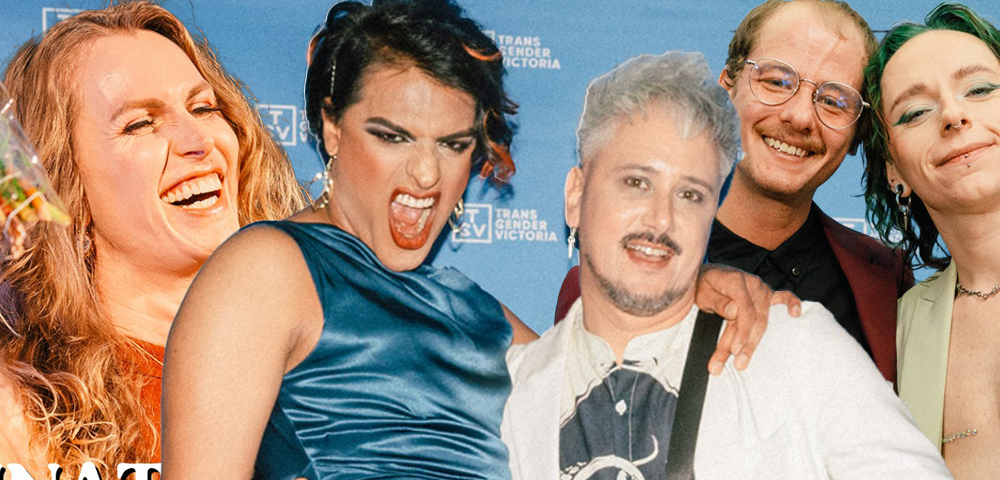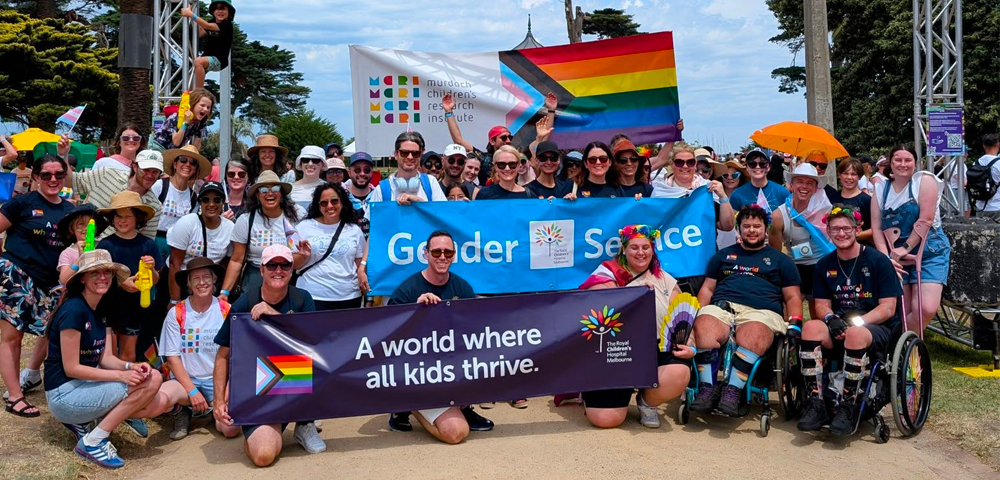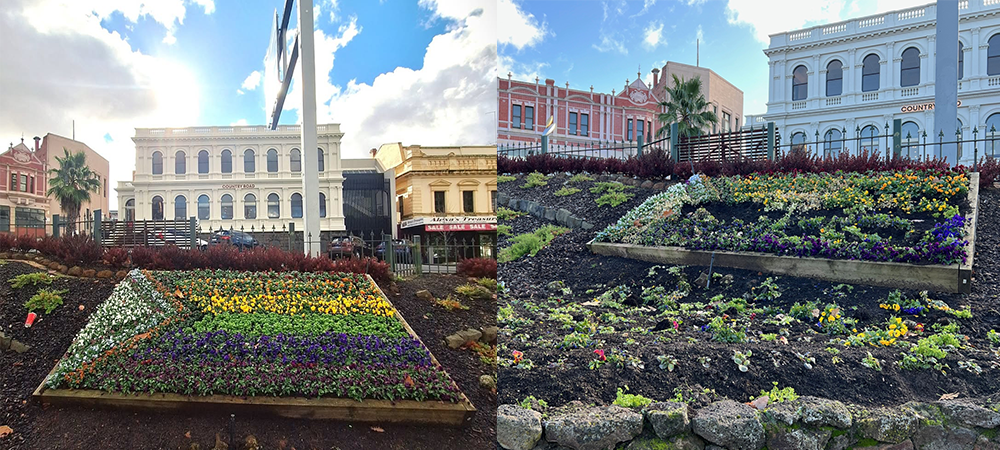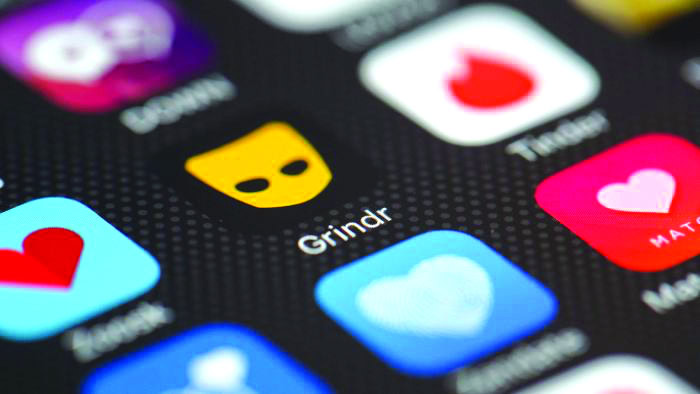
Aboriginal LGBTI community to lead Melbourne’s pride march for the first time
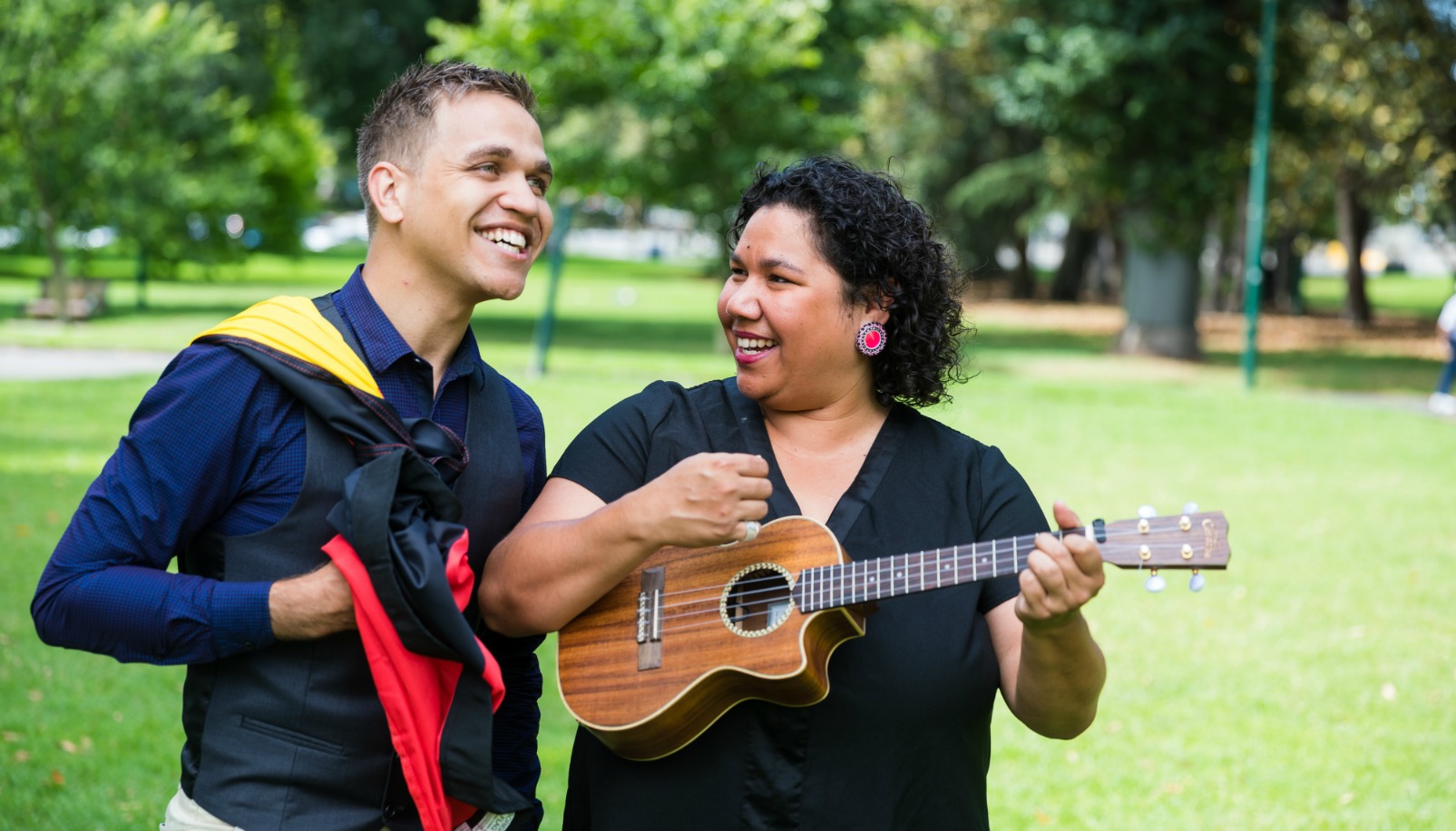
ABORIGINAL elders and community members will lead Melbourne’s Pride March for the first time this year. Matthew Wade spoke to a couple of the marchers about visibility, intersectional discrimination, and being out and proud in the Aboriginal community.
***
As an out and proud Aboriginal queer woman Jessie Lloyd sees herself as a role model, though her sexuality hasn’t always been as public or visible.
“I grew up in the church, but as soon as I became an adult I made a very clear decision to live my life the way I wanted it to be,” she said.
“But I do have a big family so there are a lot of people to consider and I’m not one hundred per cent open and public with them about being queer. A lot of my family still call my girlfriend my ‘friend’ and I respect that that’s their way of dealing with things.
“But I also feel like I’m very much a role model to other members of my family who want to come out.”
While Australia’s sexual and gender diverse community has made important strides in gaining acceptance and hard-won rights, the intersecting identities of those that are marginalised for both their sexuality and race are often left out of the conversation.
For Aboriginal members of the LGBTI community this is particularly salient as cisgender white gay men continue to dominate conversations around sexuality in the country.
It’s layered discrimination: queer Aboriginal people are not only discriminated against or vilified for their race, but also for their diverse sexual and/or gender identity.
As a means to combat this invisibility, Aboriginal community leaders and elders will lead Melbourne’s Midsumma Pride March for the first time this year, highlighting the faces and voices often forgotten about or dismissed in Australia’s dialogue around LGBTI identities.
Lloyd will be among the marchers leading Pride.
She said she feels lucky to have pride about her identity, as there are many who aren’t as fortunate.
“Pride is about appreciating the freedom that I have to love who I want and to live a lifestyle that I feel most comfortable with,” she said.
“It’s also acknowledging that that hasn’t always been the case – it’s really good to be able to live how I want nowadays, I’m very lucky.”
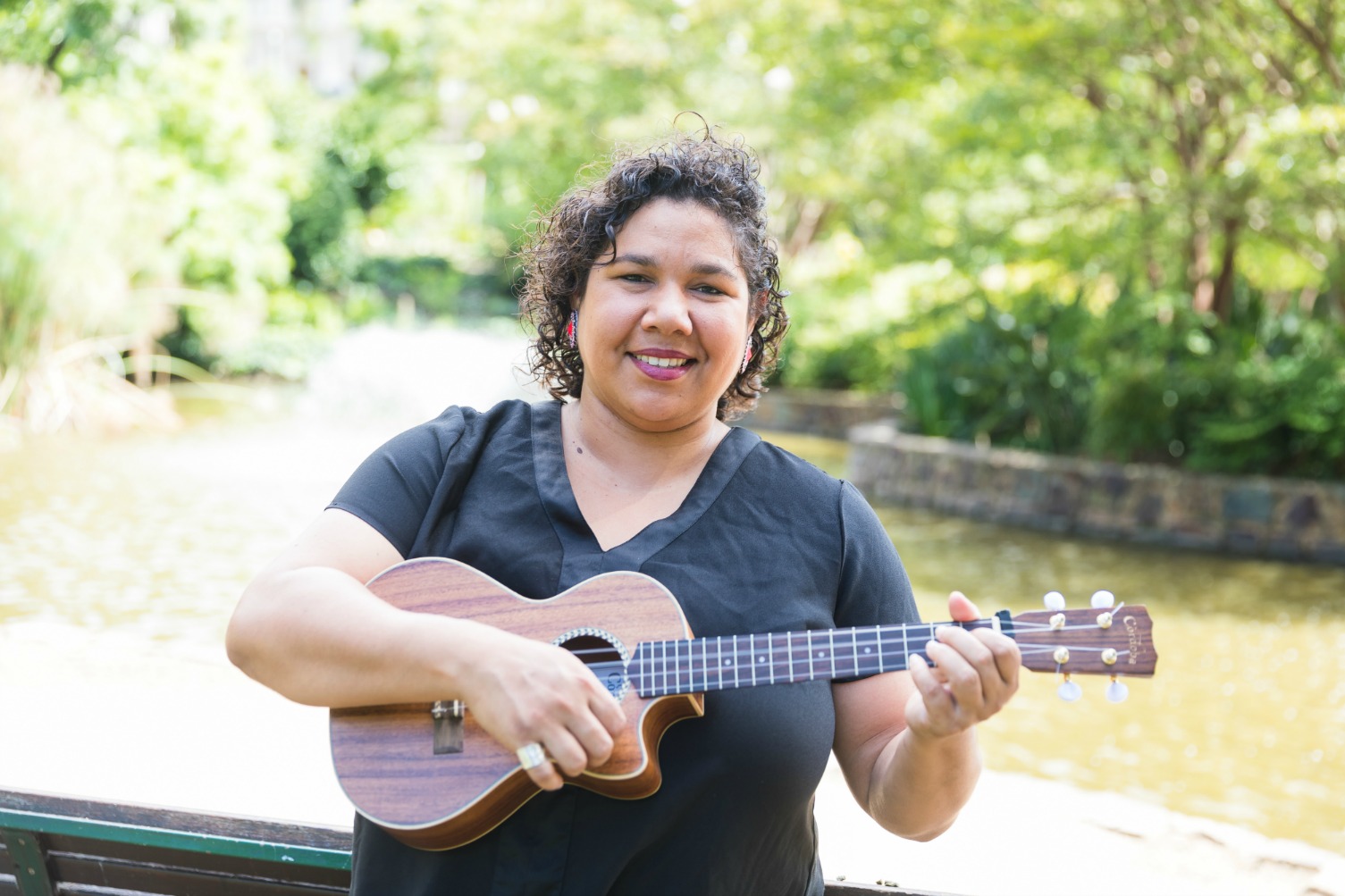
Lloyd had been having discussions with members of the community for years about queer Aboriginal representation and when the opportunity to take part in leading Midsumma’s Pride March came up she put her hand up right away.
As a musician, she’ll also be performing at the end of Pride March.
For Lloyd taking part is about much more than queer Aboriginal representation, it’s also about giving visibility to women.
“I want to make sure that Indigenous women are represented in Pride, because sometimes we do get left under the radar in various areas of the community,” she said.
“I think it’s hard for women in the LGBTI community as well, because I’ve had boyfriends and girlfriends but I haven’t had a boyfriend in a very long time. I feel the label ‘queer’ is more suited to me but that’s just me trying to pick a box. Something I think is harder for women.
“And as an Indigenous woman I think it’s okay to celebrate us as well.”
Lloyd added that the Aboriginal and Torres Strait Islander community is incredibly male-dominated, both within and outside of the LGBTI community.
She said that leading Pride will send an important message to those that often silence or disregard the voices of Aboriginal women, and queer members of the Aboriginal community.
“It’ll give us a sense of Pride but the most important message will be for white Australia to remember that we’re here, and we’re not out of sight or out of mind anymore,” she said.
“Us leading the march may have mixed reactions but it’s an ice-breaker. About three years ago I was part of an Indigenous float that led Sydney’s pride parade and you could tell the audience wanted to acknowledge all corners of our society, so it’s good that Melbourne’s giving us the opportunity to do that now.
“There ain’t no shame in my game.”
Growing up in a remote town in Western Australia made it hard for gay Aboriginal man Mark Nannup to be open about his sexuality, and his emotional health and wellbeing suffered as a result.
“I was a second-year apprentice going to work every day just hating life,” he said.
“I wasn’t out, I was working in mining and construction, and unfortunately you don’t really come out in that environment because there are a lot of ‘manly’ men that might have backwards views on gay people.
“But when I did come out, surprisingly no-one at work treated me differently.
“One of the guys was like ‘you’re proving them wrong by just showing up to work every day’ and that was all I needed to hear to cope.”
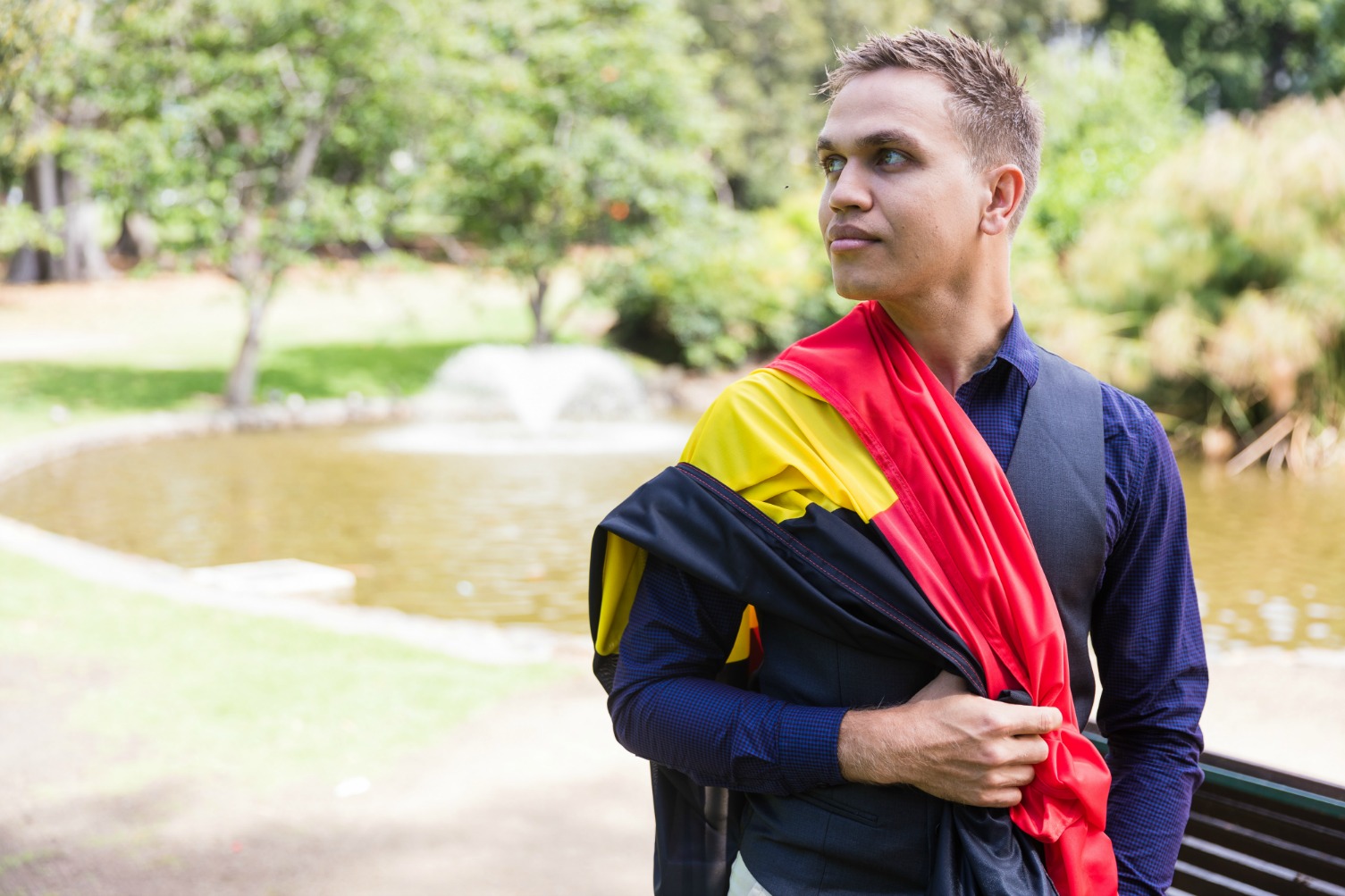
Nannup will march alongside Lloyd leading Pride in Melbourne this year, something he co-ordinated himself.
He said it’ll be a significant moment for queer members of the Aboriginal community who are often left out of conversations around pride and diversity.
“It’s extremely significant – I mean, people that live in here in Melbourne don’t ever meet Aboriginal people,” he said.
“The number of people that tell me you’re the first Aboriginal person I’ve met is ridiculous. We need to have more of a presence in this city.
“The people that have little or nothing to do with Aboriginal people will look at the march and go ‘is that what a gay Aboriginal person looks like’ and we’ll be there just happy to be who we are.”
Since coming out and leaving the remote town he lived in, the meaning of LGBTI pride has shifted for Nannup.
“Being out and proud means a lot to me – it gives other gay Aboriginal people who might be struggling with their families the opportunity to see somebody who’s proud and in the community doing stuff,” he said.
“It gives them the confidence to think ‘hey, if this person can do it then I can definitely do it myself.’”
By leading Pride March this year Nannup hopes it will increase visibility for the community and shed light on an issue close to his heart – mental health and suicide.
“There’s still so much youth suicide,” he said.
“And someone wouldn’t know that the person committed suicide because of their sexuality.
“I know I definitely went through that stage where I thought there was no-one really like me and questioned whether it was worth all the heartache and pain.
“Back then I was really distant from my community because I just didn’t really meet any other gay Aboriginal people and you’re stuck in this mind frame where you’re kind of like the minority within the minority.
“But you pull through and find a sense of empowerment and just keep pushing. I hope we can shed a light on that side of things when it comes to youth suicide and sexuality.”
Nannup’s involvement in the queer Aboriginal community is ultimately one of acceptance.
“There’s still such stigma,” he said.
“I’m just doing my part to help individuals find and understand the ground between Aboriginal and Torres Strait Islander people and white people’s ways of working.”
Midsumma’s Pride March is a free event and will be held on January 29 at 2PM. For more details visit midsumma.org.au



